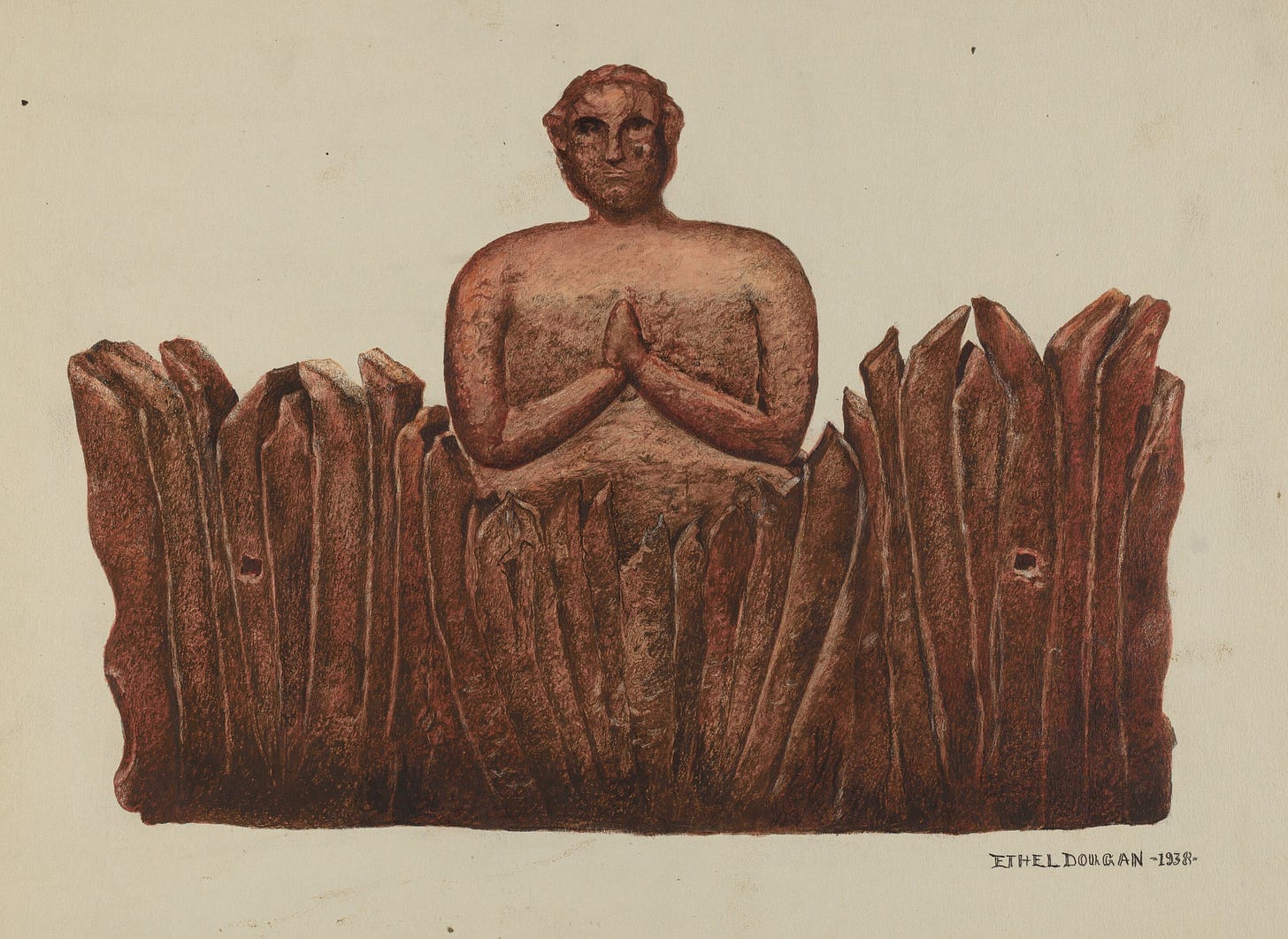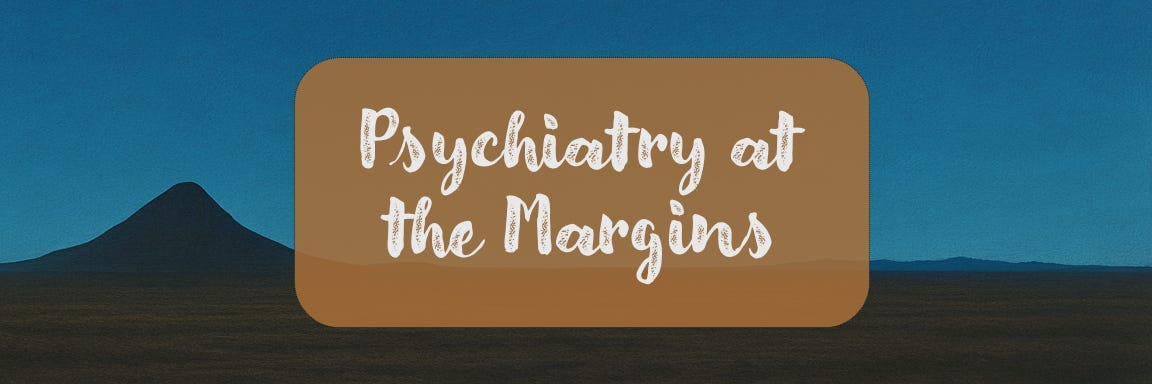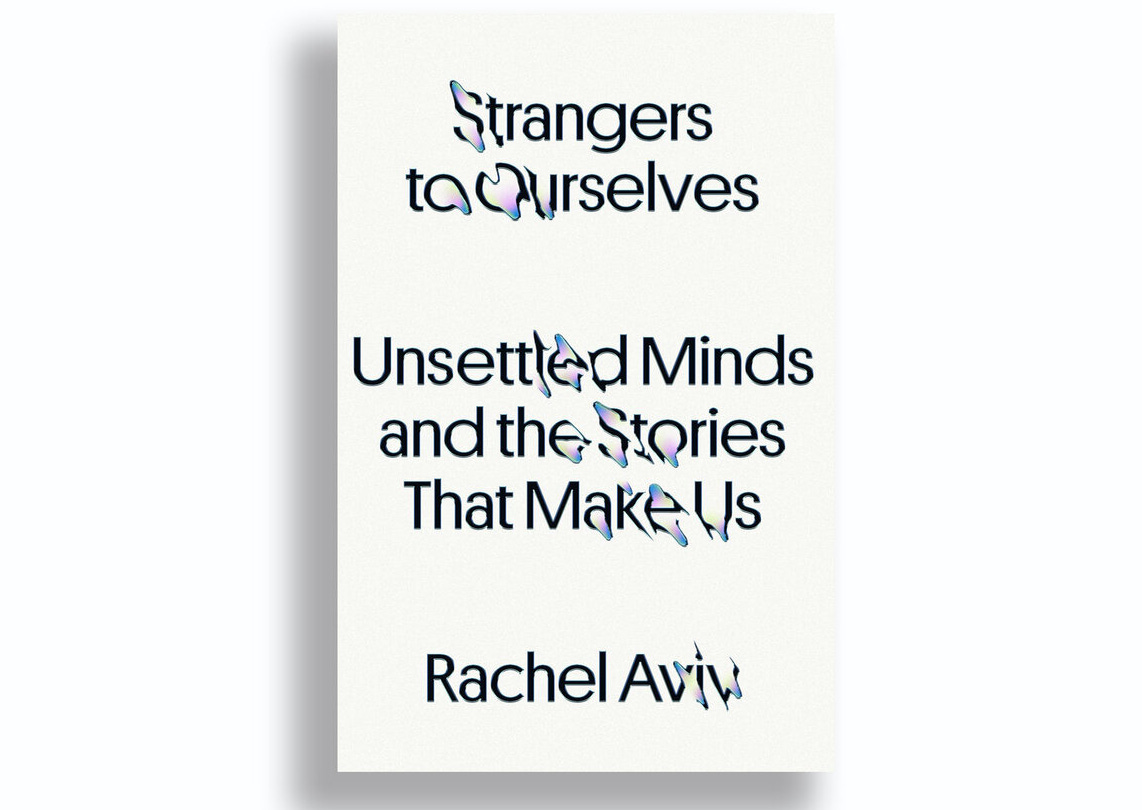In Search of the Unclassified Residuum: Q&A with Rachel Aviv
“There are stories that save us, and stories that trap us, and in the midst of an illness it can be very hard to know which is which.”
Rachel Aviv is a staff writer at The New Yorker, where she writes about psychiatry, medical ethics, and criminal justice, among other subjects. She is a winner of the George Polk Award for magazine writing and the National Magazine Award. Her 2022 book, Strangers to Ourselves, a finalist for the National Books Critics Circle Award, was a New York Times bestseller and named one of the ten best books of the year by the Wall Street Journal and the New York Times. Her next book, You Won’t Get Free of It, will come out in July 2026.
Aftab: For readers who haven’t read or are unfamiliar with Strangers to Ourselves: Unsettled Minds and the Stories That Make Us, can you introduce the book in your own words?
Aviv: In the book I write about five different people, living in different eras and cultures, who feel as if they have come up against the limits of psychiatric explanations for who they are. A central idea that I was trying to work through relates to suggestibility: the ways in which our internal experiences can be shaped by the frameworks and language that gets imposed on our behavior. Sometimes when we are given an explanation by an expert—that you have an illness that is called bipolar and you must take medications for the rest of your life— it works really wonderfully, and it can be very healing, but sometimes, when it is imposed from on high, it can feel like a kind of affront to everything we believe about ourselves. It starts to define our expectations for who we are and who we can be.
Aftab: I loved Strangers to Ourselves, and I’m very grateful that you wrote it. It left a mark on me for sure and I think about it often. We’ve both been interested in many of the same questions. The approach I’ve taken has been to build on foundational work that has been done by folks in philosophy of psychiatry, especially in the pragmatic, pluralistic tradition, and to de-reify and de-concretize notions of mental illness, treating them as pragmatic tools rather than essences, and placing them within the context of multiple interfacing explanations. From this sort of vantage point, the traditional debates and binary positions around diagnosis and treatment just seem very outdated, unhelpful, and unsatisfactory to me. My response to the central problem you pose in the book has been to try to disconnect diagnosis from the illness identity dynamics you described, to try to offer a better understanding of the “medical model” that doesn’t trap people in unhelpful stories about the brain, to challenge the idea of insight that leads you, for example, to say, “In the starkest terms, insight measures the degree to which a patient agrees with his or her doctor’s interpretation.” I don’t know how successful I am in this endeavor, but what do you make of this strategy?
Aviv: I agree completely with what you said about the binary positions feeling outdated. As for the hope of de-reifying notions of mental illness, in the book that was one of the reasons I was so drawn to people’s own descriptions of their illness—often expressed in unpublished, contemporaneous writing, like diaries and letters. I wanted to understand how they described the nature of the distress before it got translated into a particular model of illness. In my own case, which I describe in the first chapter, I had stopped eating as a six-year-old and was diagnosed as anorexic and hospitalized for six weeks, but I was curious about what was at the core of that: I was sort of psychiatrically innocent, had never heard the word “anorexia,” and was acting out a set of behaviors without knowledge of the cultural category that I was about to fall into. So I was interested in that moment of shift: how does the behavior change once a person realizes that they are part of a larger cultural/medical story?
Aftab: Looking back, what have been the most formative intellectual influences on how you understand life and the world around you?
Aviv: Well, on a personal level, I sometimes look back on a strange and (as I experienced it then) very unpleasant experience of being made to see a psychoanalyst, from first to fifth grade, three times a week, as an accidental education in a certain way of thinking about human behavior. It was like I was being trained in my therapist’s office to not take behavior at face value, to assume there were more complicated motives and dynamics behind it. I hated my therapist, because I felt exposed and forced to spend so much time in her office, but I do think she gave me a certain language and curiosity about people’s minds that I might not have otherwise had. (And looking back now, the therapist might have been good? But at the time I experienced her as pure invasion.)
In my mid-twenties, I read two books about psychosis—Elyn Saks’s The Center Cannot Hold and Louis Sass’s Madness and Modernism—that felt transformative. The language felt so new to me. It felt like I was being confronted with a category of experience that I had not previously known existed and that had only been described in superficial, stereotyped ways. Those two books inspired me to write a piece about the earliest stages of psychosis—when people sense that the nature of their experience has changed, but they still doubt that what they are experiencing is real. I ended up writing about a woman who was struggling with the ways that her own early psychotic experiences failed to conform to textbook psychiatric descriptions. She taught me so much about psychiatry and psychosis—the gap between people’s subjective experiences of illness and the language used to describe their symptoms, and how lonely it can be to feel as if you have somehow fallen out of the realm of human communication.
Years later, I came across a William James essay, “The Hidden Self,” where he writes, “The ideal of every science is that of a closed and completed system of truth.” Scholars achieve this goal by neglecting what he calls the “unclassified residuum”—those symptoms and experiences that do not “wear just this ideal form.” It was actually when I read James’s essay that I started pulling together the ideas I had been thinking through for about a decade and tried to figure out how to express them in book form.

Aftab: The idea of psychiatric diagnosis as having the potential to trap people in an unhelpful story is relatively established at this point. What about people being trapped in unhelpful stories about iatrogenic harm? I see a real danger there as well. You briefly touch on the issue in the book but it’s not examined in much detail. What are your thoughts on this?
Aviv: I think there’s a way in which the oversimplified story of “medication fixed my chemical imbalance” can get mirrored, like a 180-degree flip, by the inverse story: “my suffering is 100% a result of psychiatry.” Of course there are many cases in which psychiatry intervenes in traumatic, paternalistic and damaging ways, but I think the iatrogenic harm story can involve a simplification that, oddly, mimics the “chemical imbalance” one in the sense that there’s a failure to think about social, economic, and structural reasons for a person’s distress. It can become another too-easy story that blots out ambiguities.
Aftab: When you are working on a story, do you struggle with the question of whether your narrative might confine rather than clarify the subject of your story?
Aviv: Yes! I do like to write stories that focus closely on one person’s experience, to illuminate larger questions or issues, but the problem is that one individual’s story will tend to lead readers to a certain set of more general ideas and conclusions. Another person’s story might point readers to a different set of inferences about those issues. The value of focusing on one person, I think, is the level of depth that is possible, but I do worry about the specificity of the lens, and in an ideal story there is a chance to come at one question from different angles and perspectives. Writing Strangers to Ourselves felt freeing because I got to write about five very different people and I could emphasize the diversity of people’s experiences within psychiatry. But I also think that multiple different stories for understanding illness can co-exist in one person’s life.
Aftab: Something you said in a Q&A with Justin Garson for Psychology Today,
“to behave as if one knows the one certain answer in this field ends up looking like hubris. The field itself has swung from one position of certainty to another for a long time, and I think now we’ve finally reached a point, at least to some degree, where people are generally a little more open about recognizing that multiple frameworks and approaches are necessary.”
I love this quote because it conveys the spirit of epistemic humility that I’ve been trying to promote as a virtue in the psychiatric field. Why do you suspect it has been so difficult for the field to disengage from false certainties?
Aviv: Well, I don’t think it’s just this field! But it makes sense that psychiatry, as compared to other medical disciplines, is more susceptible, given that the search for definitive biomedical signs and causes of illness has been so elusive for so long. All our psychiatric treatments are deeply imperfect—and it’s hard to know why exactly something works for one person, and not another—so people come to these questions from a place of desperation. There is more of a tendency for a particular theory of human behavior to turn into a kind of “movement,” a belief system.
Aftab: What kind of explanatory theories of mental illness do you find yourself drawn to?
Aviv: I guess the main thing would be: that no single theory can explain the totality of it.
In the book I write a little about my own ambivalent journey with antidepressants, and I can’t say I’ve evolved in my thinking since then. I find myself avoiding the subject (in my own mind), because I don’t know what to do about the dilemma I find myself in: still taking antidepressants, while still somewhat unconvinced by what I am doing. But also democracy in this country is ending, so why pick this particular moment to go off anything that provides some ease? I guess that’s where I am on that particular question.
Aftab: Is there a book about psychiatry or mental healthcare that you admire and think more people should read?
Aviv: So many! Anything by Louis Sass, Ian Hacking. For psychiatric history: David Healy’s “The Antidepressant Era,” “Great and Desperate Cures” by Elliot Valenstein. Other psychiatric historians I really admire: Anne Harrington, T.M. Luhrmann, Dagmar Herzog. I really liked “Depression: A Public Feeling” by Ann Cvetkovich, which I reread when I was writing the book. I just read “Sad Tiger” by Neige Sinno and thought it really beautifully captured the dynamics of incest, how it affects a child’s development and mind.
Aftab: Any advice for Psychiatry at the Margins?
Aviv: Do not stop! I’m excited every time I get an alert that you’ve written something new.
Aftab: Thank you!
The subtitle of the post is a direct quote from Strangers to Ourselves.
This Q&A is part of a series featuring interviews and discussions intended to foster a re-examination of philosophical and scientific debates in the psy-sciences. See prior interviews here and my 2024 book, Conversations in Critical Psychiatry (Oxford University Press).
If you are a regular reader of this newsletter, and it deepens your intellectual life, consider a paid subscription to support this effort.
See also:






I have a William James quote in my thesis. It's intriguing to see so many of his insights pop up in so many different areas. Another interesting book to add to my TBR list!